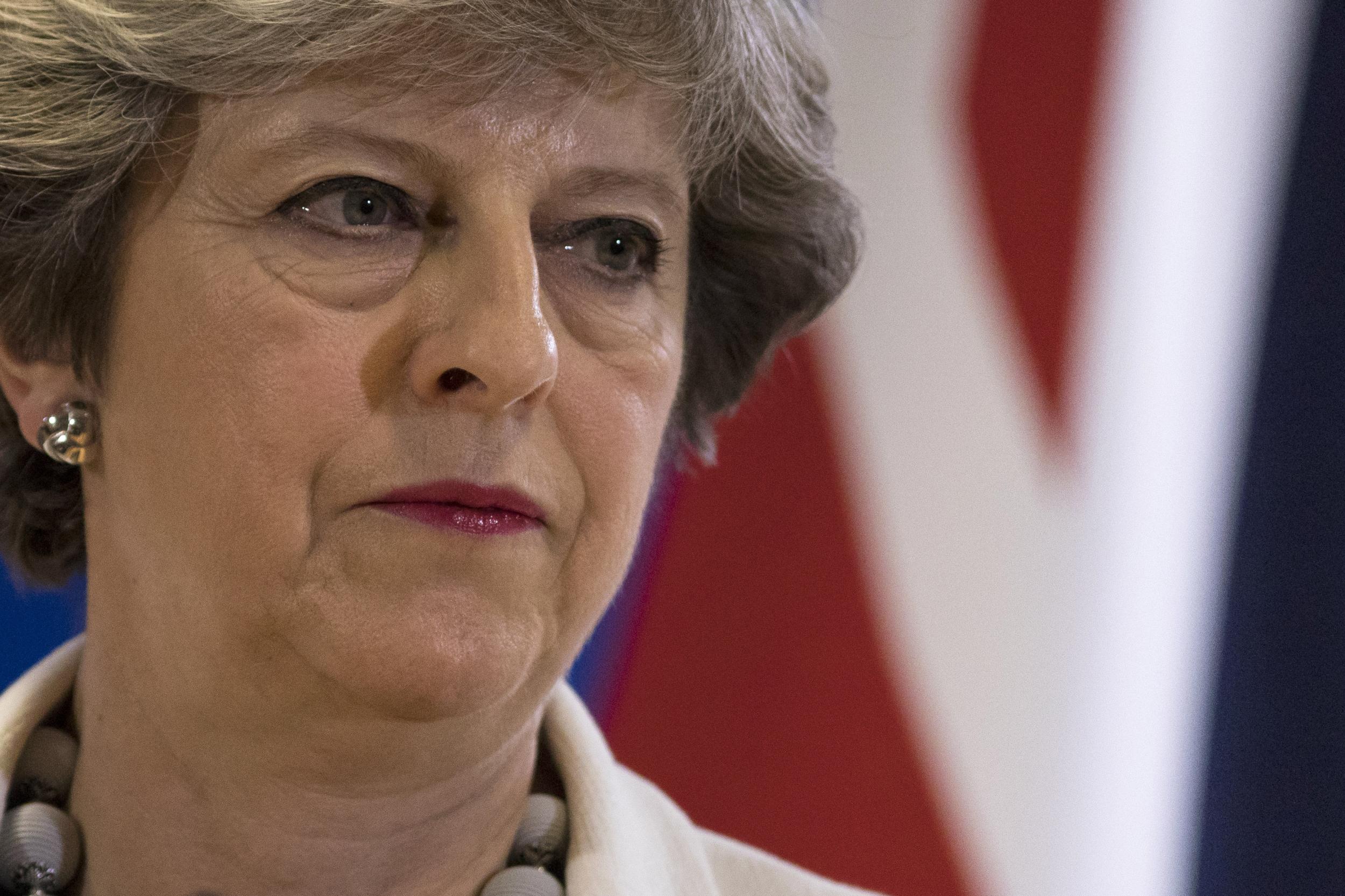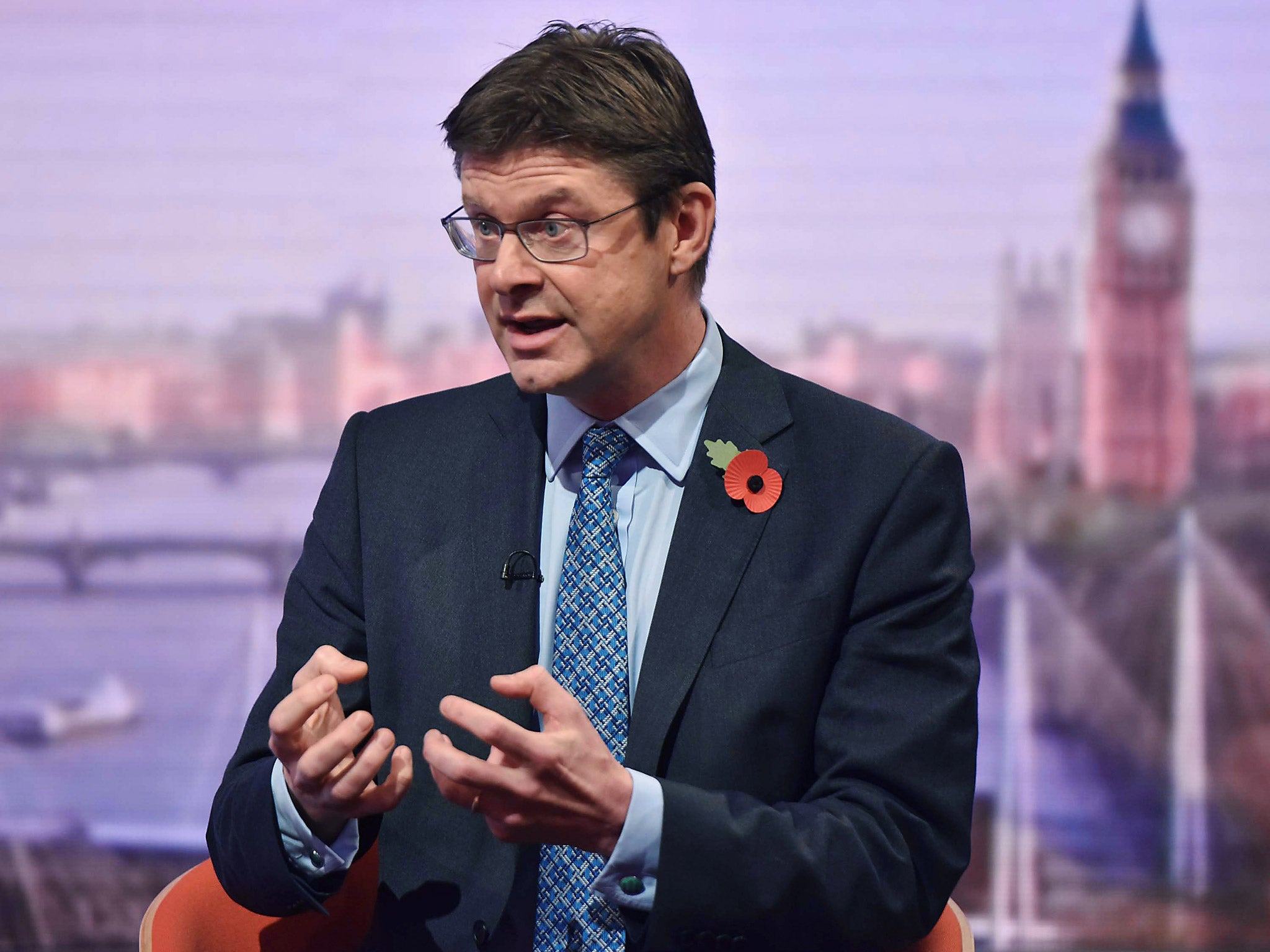Civil servants lay ground to dump Theresa May's planned energy bill cap amid cabinet split
Exclusive: Investors have been told the Government has not decided if there is 'any need' for cap

Theresa May’s flagship plan to cap energy bills has been cast into doubt after evidence emerged that Whitehall officials are laying ground for it to be shelved next year.
The Independent has learnt the Government has already told energy investors Ms May’s draft proposal will be ditched if it feels the “Big Six” power firms are doing enough to tackle high bills, an approach now also confirmed by civil servants.
It comes amid a months-long cabinet rift over her election promise to end “rip-off” energy price rises by “introducing a cap”, a pledge fleshed out in her conference speech less than three weeks ago.
Tory insiders who back a cap now fear the Draft Domestic Gas and Electricity (Tariff Cap) Bill brought forward by Ms May will never be written into full legislation, let alone passed before the current parliamentary session runs out of time.
The cabinet split over the cap follows others over Brexit and university tuition fees, as the Prime Minister strains to keep her administration on track in the wake of June’s election.
Despite pressure from Tory backbenchers who promised voters a cap in June, The Independent has been passed a transcript of a telephone call in which an energy investor is told by an official at the Department for Business, Energy and Industrial Strategy, that the Draft Bill could be dropped in early 2018.
The investor asks whether elements of the cap-proposal can be changed and is told the draft still has three to six months pre-legislative scrutiny before it is even introduced to Parliament as a Bill.
The official adds: “There will be a decision point from the Secretary of State, based on the state of the market and the process made by [energy regulator] Ofgem on its cap, on whether there is any need for a Bill.”
Asked if the whole process could be halted if energy companies scrap the ‘standard variable tariffs’, or SVTs, that are at the heart of the energy bills row, the official says: “Yes.”
The civil servant goes on: “Ministers will take a view on whether to proceed on the basis of progress in the market and any announcements by suppliers – but they would need to be highly effective.”
The Big Six are already suggesting that abolishing the SVT is their preferred solution, with three having scrapped them. But many fear the tariffs will be replaced by fixed contracts which might be just as expensive.
A source close to Business Secretary Greg Clark said he is committed to taking action and “determined” to make energy companies act more fairly.

Conservative MP John Penrose recently orchestrated a cross-party letter, also signed by some 80 Tories, calling on the Government to live up to election promises on a price cap.
He said: “If these Big Six proposals are simply a re-naming of rip-off default tariffs then they’re just a con. I can’t believe that anyone would be so easily fooled by it.
“Instead, the Big Six should be transferring customers onto their best deal or something very close to it. That’s the only way to repair their tarnished reputations.”
Ms May’s cap was first promised in May during the election campaign, but she was accused of a U-turn when it emerged that the job of imposing it would be passed to regulator Ofgem, which raised concerns over whether it had legal authority.
The Draft Bill then published after her conference speech at the start of October outlined provisions for providing Ofgem with a duty to impose the cap, but there was confusion as to why Ms May had not pushed ahead with a full Bill.
One Conservative insider said: “It is by no means certain that any actual Bill will ever see the light of day.

“There is up to half a year of scrutiny of the draft before they even think about writing one that they would then have to put to Parliament, at the same time that they are talking about sitting extra hours because there’s not enough time to get Brexit through.
“It could very easily be delayed, put off because the companies give a little ground, pushed back and pushed back again, until there is no time. And not everyone would shed tears about it.”
The Independent understands that Chancellor Phil Hammond and Communities Secretary Sajid Javid are among those with concerns about a cap, though spokespeople for the ministers would not comment.
As well as believing the move to be anti-business, there is a feeling among opponents that it would play into the hands of Jeremy Corbyn’s interventionist agenda, inadvertently confirming to voters the Labour leader’s approach is the best way of tackling the country’s problems.
In his own conference speech, Mr Hammond said Mr Corbyn’s “solutions” should be dismissed and then gave a full throated defence of the market economy, saying it is “the best system yet designed for making people steadily better off.”

When ex-Labour leader Ed Miliband proposed a cap, Boris Johnson said it would be “catastrophic”, would eventually lead to higher energy prices and deter investment, while Michael Fallon said it would be “extremely dangerous”.
Other Conservatives want the energy market blown open, with a plethora of new little firms being encouraged to trigger a price revolution in the industry like that driven by taxi firm Uber.
None the less, Ms May re-committed to the cap at conference which is seen not only as a manifesto pledge, but a key plank of her domestic agenda. One senior Tory insider told The Independent Ms May would even be willing to move Business Secretary Mr Clark from his post if she does not feel she is getting enough movement on the issue.
A recent Competition and Markets Authority revealed that customers are currently paying £1.4bn more than they would be in a fully competitive market.
Price comparison service uSwitch also warns today that households could see their bill rise by up to £395 a year from November as popular fixed deals come to an end and customers return to STVs.
Shadow Business Secretary Rebecca Long Bailey said: “The Tories can't be trusted on the energy price cap. In the general election campaign, they promised a price cap for 17 million households but then backtracked in the summer, passing the buck to Ofgem and letting millions of people's bills rise still further.
“Theresa May promised to legislate for a price cap again during her conference speech, but the Government has only produced watered down draft legislation. And now it appears they are trying their best to escape even these limited proposals.”
Join our commenting forum
Join thought-provoking conversations, follow other Independent readers and see their replies
Comments
Bookmark popover
Removed from bookmarks